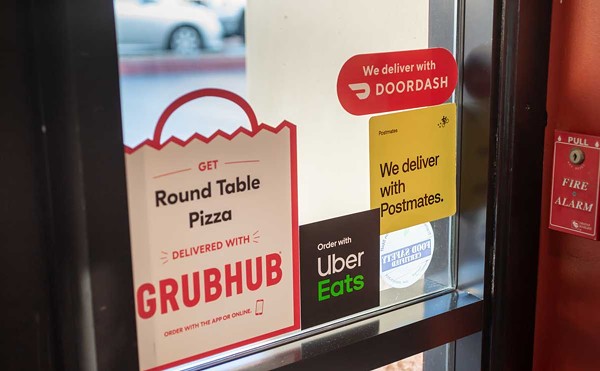In our last Food Issue, we observed that food was becoming a bit, um, political. If anything, the last year has clinched it. That vocal minority concerned about "food security" is growing, inspired by writers like Eric Schlosser and Michael Pollan, and informed by documentaries like King Corn and Super Size Me. Opinion polls show that, 2 to 1, Americans oppose how 80 percent of federal farm subsidies go to large farming concerns, even in traditional farm states.
And, in the midst of last year's heady presidential campaign, small-fooders took notice when, in an interview with Joe Klein in Time magazine, presidential candidate Barack Obama referenced an editorial from Pollan in The New York Times. Obama accepted Pollan's criticism that "our agriculture system is built on cheap oil," promising to reform the policies and subsidies that promote an industrial food system where, as Pollan describes it, "we are eating oil and spewing greenhouse gases."
After this sort of buildup, many food activists were disappointed when Obama appointed former Corn Belt governor Tom Vilsack as head of the USDA. And, after 100 days, despite Michelle Obama's organic garden and a few minor progressive appointments, such as public-interest lawyer J. Dudley Butler as a regulatory head, the Obama administration hasn't made any bold moves on agriculture.
That said, Ferd Hoefner, policy director at the National Sustainable Agriculture Coalition in Washington, D.C., is cautiously optimistic. "I think the jury is still out a bit." he says, "In terms of policy follow-through, it's still early. But nothing dramatic has been done quite yet."
Hoefner says policy analysts are watching a few pressing issues, such as whether the administration will revamp the Child Nutrition Act, making it easier for schools to procure higher quality food from small farmers. But more important is an upcoming executive decision on eligibility for commodity subsidies, including "direct payments," which reward farmers in good years and bad. Many sustainable agriculture activists would like to see them reformed, or at least have them go to the farmers who have dirt under their fingernails.
Hoefner says, "Right now, it's pretty wide-open. You can be an absentee investor in a farming operation 10 states away — or two continents away — and you can still get taxpayer subsidies. ... To use impolite terms, it's a taxpayer-financed scam."
In his campaign, Obama spoke specifically to reforming those direct payments, but sustainability boosters like Hoefner are still waiting for something substantial.
He asks, "Gardens and speeches are sending a good signal. But what are the policy changes that are going to back that up?"
Similarly, Oran Hesterman, president of Ann Arbor's Fair Food Foundation, says, "We're seeing some very tiny policy steps in the direction of healthier, more sustainable agriculture, but we need to be taking much bigger strides in public policy." But the longtime sustainability advocate knows what reformers are up against, a status quo of policies that reward growers of a handful of commodity crops but offer little help for fruit, nut and vegetable growers.
"[These policies] were created in a time when it made sense to subsidize the larger farms to produce a lot of calories that we needed for food then. Right now the issues are different," he says. "I think it's fine to have large farms that are producing lots of food. We also need to be supporting more small-scale agriculture at the same time."
Asked about controversial legislation like HR 875 — the bill some alarmists bloggers said could have garden cops in your back yard ripping out your organic tomatoes — Hestermann believes most of that to be "hysterical." But he is glad to hear of people feeling strongly enough about federal food policy to actually write their representatives at a time when food policy is up for review.
"There are conversations right now in Congress about creating new food safety regulations and standards, which, depending on how those end up, could affect local growers who want to sell at market," he says. "They might unfairly burden small-scale or local producers or they might enhance their ability, but if we don't see support from the people it's less likely that we'll see laws favorable to small-scale production."
Though he's encouraged by the sort of bottom-up food activism celebrated in our accompanying cover story, he stresses the importance of changing policy in addition to individual lifestyle choices.
"There's this sort of revolution happening around food, in kitchens, in gardens, in restaurants and stores," he concedes. "But at the same time, we have a food system that's as broken as any of the other systems in the country are broken: health care, transportation, energy, the financial system. My belief is that we have to move beyond thinking that we can change the system by changing what's on our plate. That's like trying to change the health care system by changing your doctor.
"The main point is that if we're going to see a food system evolve in our country that's both environmentally friendly and provides healthy, safe food to residents — especially in a place like Detroit — we're going to have to move beyond our refrigerators."





